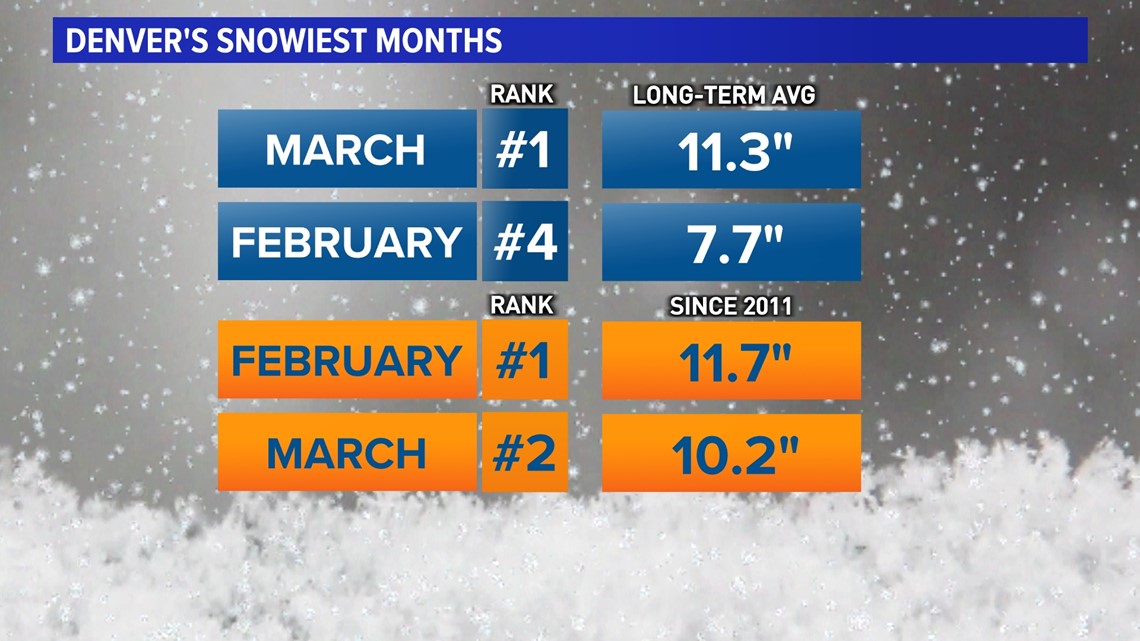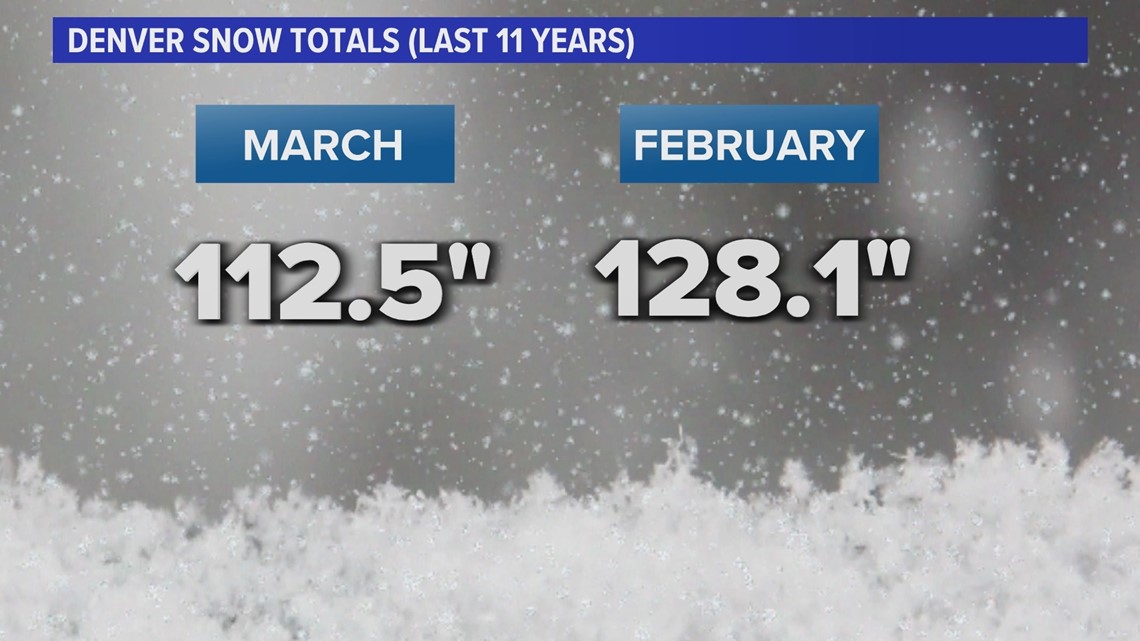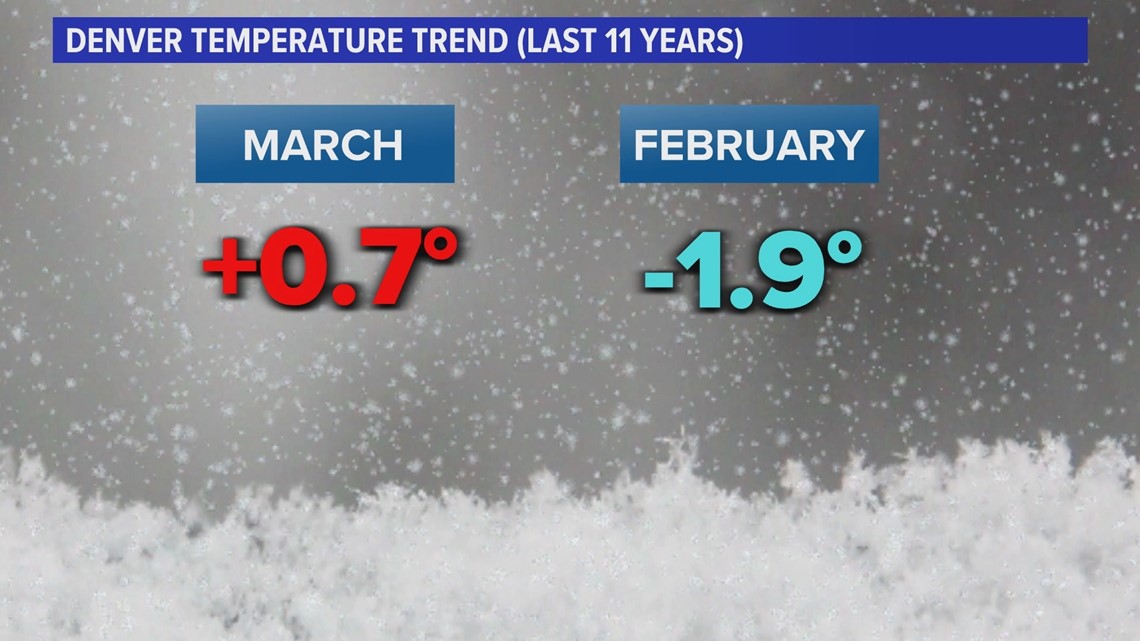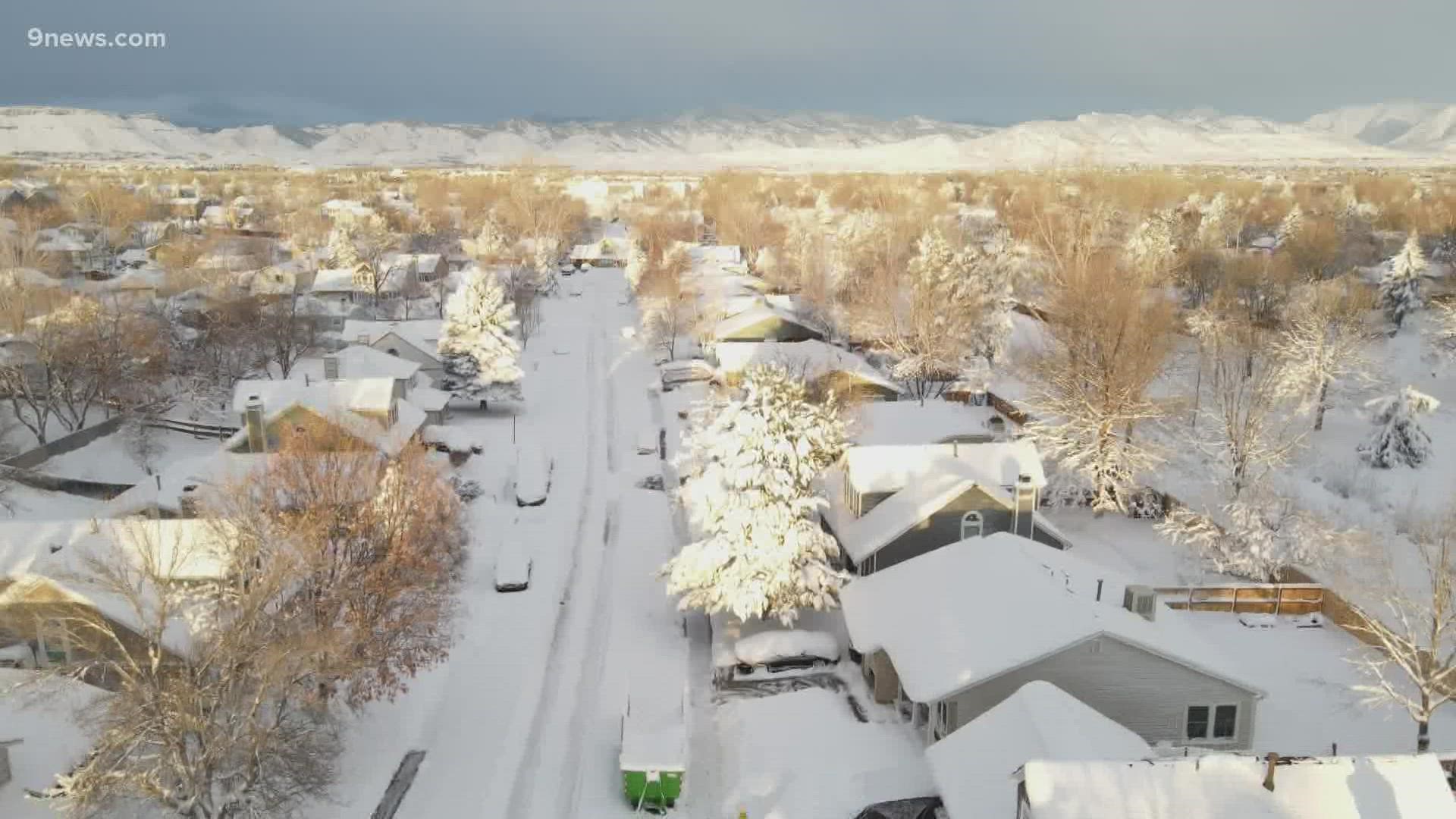DENVER — If you've lived in Denver for a while, you've probably been told that March is our city's snowiest month. On average, that is true, but sometimes averages don't tell the whole story.
Sometimes using a shorter average can help detect a changing trend. Which in this case, is February becoming Denver's snowiest month over the last 11 years.
Denver’s snowfall record goes back 140 years.
Using the long-term average, March is Denver’s snowiest month, with 11.3 inches. And February is number four with 7.7 inches.
But over the last 11 years, it’s February in the top spot with 11.7 inches. March is number two, with 10.2 inches.


That’s a pretty amazing statistic considering Denver got 34 inches of snow just last March.
Counting last year's huge total, there has now been 112.5 inches of snow in Denver over the last 11 Marches. But there has been 128.1 inches in February.
And February has been Denver’s snowiest month three out of the past four years. March had the most snow last year, which broke a three-season streak with February on top. December was snowiest in the 2016-17 season.


There is a clear trend that February is becoming Denver’s new snowiest month, at least recently.
The main reason is temperature. March has warmed by nearly a degree over the last 11 years, while February is colder by almost 2 degrees.


There have also been fewer opportunities for snow in the month of March. Over the last 11 years, there’s been an average of 7.8 days with snowfall in March, and 11 days of snow during the month of February.
Another explanation could be the fact that Denver's official climate station moved from the old Stapleton airport to Denver International Airport (DIA). Since that move in 2005, there has been more snow at DIA than at the old Stapleton station, which continues to be maintained in Central Park.
An 11-year average is still considered a short-term trend and not typically accepted in a climate discussion, but you can see how it puts a fine point on something that we may have been feeling in recent years.
Using a 30-year average with the current period of record, which is 1990-2020, March is still way out in front, but February has moved into the second spot.
March will likely remain as Denver's snowiest month for at least 30 more years using the long-term average or the 30-year period of record, thanks in part to the monster 34-inch showing in 2021.
SUGGESTED VIDEOS: Snow in Colorado

